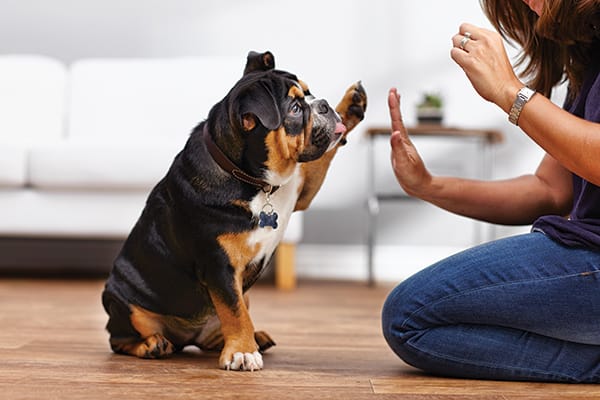4 Useful Treats For Dog Training

Most of us have been taught to delay formal dog training until a puppy is 6 months old. But this is an incorrect strategy because puppies are capable of learning at a young age. They develop adult behavioral patterns and go through a series of fearful phases. Delaying the start of formal training means you are missing opportunities to teach your puppy the behavior you want. Instead, begin training a puppy when he is a puppy. If you wait until the puppy reaches this age, he will already have ingrained his bad habits.
Dogs need motivation and rewards during the training process. Using training treats to reinforce good behaviour is a great way to keep your dog motivated and show them they're on the right track. A training treat should be small enough to fit in a pocket, yet big enough to attract your dog's attention. Some dogs are picky eaters and will reject a tasty treat. But don't worry. Here www.k-9culture.com are some useful treats for dog training:
Humanistic dog training: Unlike traditional training, this method doesn't involve punishment or reprimanding your dog. Instead, it follows Carl Rogers' ideals of unconditional positive regard. Because humanistic training focuses on a dog's well-being, it's an ideal option for those who want to keep their dog in line. While this method may take some time, it's worth the effort. It's possible that your puppy will backslide, so make sure to stay patient and consistent.
Positive dog training starts young. Puppy socialization and daily training are vital. Puppies learn basic commands and basic obedience early. It's important to get a handle on these social skills and avoid letting your pup wander off. As early as a few weeks old, start training your puppy to behave appropriately. For example, ask your puppy to sit before receiving food, entering and leaving the house, or being petted. You're training your puppy all the time - all day long! Training helps your puppy learn predictable rules for interactions and teaches your dog who controls resources. Click here to learn more about dog training methods.
If you are not sure which method to choose, there are plenty of methods to choose from. Some use positive reinforcement, while others use punishing methods. But you should keep in mind that no technique will work for every dog. If you don't feel confident in your abilities, it's better to leave your dog with a professional. In addition to these methods, you should also consider other techniques. The choice depends on your needs and your budget.
As you train your dog, don't skip obedience classes. This will give your dog the skills it needs to live in a happy and peaceful relationship with humans and other animals. While domestic dogs may seem like an easy lifestyle, they have a lot of pressures on their heads. So a good training session will keep your dog mentally and physically stimulated. If you can find the time, it's a great way to spend time with your dog. Check out this post that has expounded on the topic: https://www.britannica.com/animal/dog/Training.
